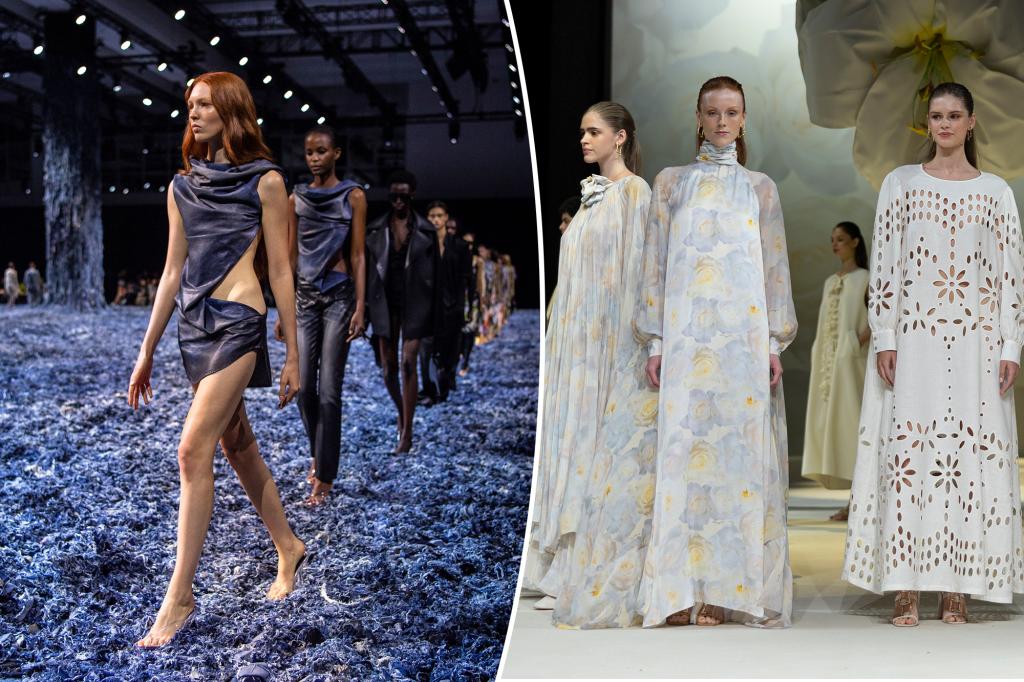The recent fashion weeks around the world have shown a notable backing away from the trend towards body positivity and plus-size inclusion on runways. Instead, there has been a shift towards a more traditional emphasis on thinness, with the resurgence of trendy weight loss drugs like Ozempic being cited as a contributing factor. A new report published by Vogue Business found that less than 1% of the looks shown at major fashion weeks were worn by plus-size models, with the majority being straight-size models.
The lack of representation for plus-size models at fashion weeks has been described as disheartening by industry insiders, with some calling it the worst season for representation in a long time. Brands such as Coperni and Miu Miu had no plus-size runway looks, while others like Ester Manas and Rick Owens ranked high in plus-size representation. New York was found to have only four of the top 10 brands including plus-size models, which is less than the previous season.
Some in the fashion industry have been vocal about the return to promoting ultra-thin models, with some fashionistas openly praising the extremely skinny look. There are concerns that the focus on thinness is leading to unhealthy behaviors among models, with reports of models arriving at shows looking unwell and underweight. Models have expressed feeling fat, despite being considered underweight for their height and age.
Celebrity trends towards slimming down and the popularity of weight loss drugs like Ozempic have contributed to the resurgence of the ultra-thin ideal in the fashion industry. Plastic surgeons are reporting an increase in requests for the “ballet body,” characterized by an athletic and slender frame. The popularity of Ozempic has led to shortages, secondhand online selling, and dangerous dupes, with some individuals even dressing up as the drug for Halloween.
The return to emphasizing thinness in the fashion industry has been criticized by many, with concerns about unhealthy beauty standards and the impact on models. The lack of representation for plus-size models at major fashion weeks is seen as a step backwards in terms of body positivity and diversity. The industry is being called upon to prioritize the well-being and diversity of models, rather than promoting unattainable and unhealthy standards of beauty.


